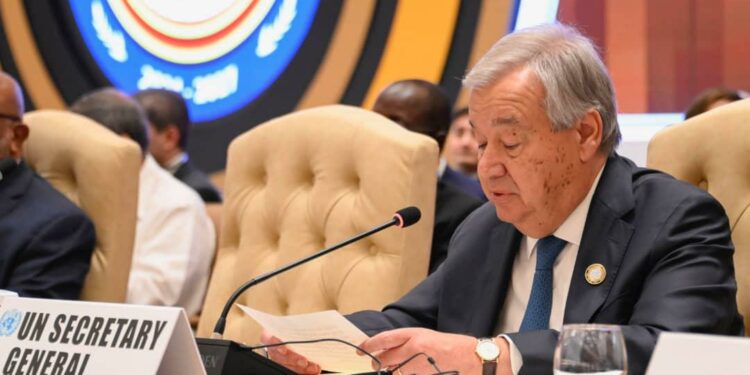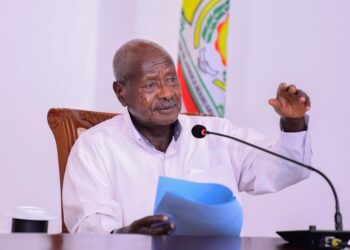In a fiery speech, the United Nations Secretary-General António Guterres delivered a scathing rebuke on Saturday, condemning the Israeli government’s unwavering refusal to recognize a Palestinian state as “utterly unacceptable.”
Speaking at the closure of the 19th Summit of the Non-Aligned Movement in Kampala, Guterres underscored the gravity of the situation, branding Israel’s stance as a threat to global peace and security.
The Speke Convention Center in the southern part of Uganda’s capital became the epicenter of geopolitical tension as Guterres passionately addressed world leaders, insisting that the denial of a two-state solution for Israelis and Palestinians is not just a local issue but a ticking time bomb with far-reaching implications.
The UN chief expressed concern that the prolonged conflict could exacerbate global polarization and embolden extremists on a scale hitherto unseen.
Guterres’s strong comments were prompted by Israeli Prime Minister Benjamin Netanyahu’s total rejection of a future Palestinian state and his recent declaration asserting Israel’s necessity to maintain security control over the entire West Bank.
This stance, in direct violation of international law since 1967, has ignited a war between Israel and Hamas, marked by an October 7th attack that claimed 1,200 lives in Israeli territory and resulted in the abduction of at least 240 people.
The toll of the conflict has been staggering, with the Israeli military offensive in Gaza claiming over 24,600 confirmed deaths among Palestinians, including a heartbreaking number of children.
The humanitarian crisis in Gaza has worsened, exacerbated by shortages of food, drinking water, basic supplies, and fuel due to Israel’s blockade and slow aid truck inspections.
Guterres, not mincing words, renewed his call for an immediate cease-fire and the “immediate and unconditional release of all hostages” held by the Islamic group Hamas, emphasizing the urgency of humanitarian intervention to alleviate the suffering.
Zooming out to the broader global landscape, Guterres painted a grim picture of democracy eroding, populism and extremism on the rise, growing poverty and social inequalities, and human rights and international law being flouted with impunity.
He urged for a comprehensive reform of the “outdated, unjust, and unfair global financial system” to ensure equitable benefits for all nations.
The Non-Aligned Movement, represented by leaders from 53 African, 39 Asian, 26 Latin American and Caribbean, and 2 European countries, unequivocally condemned Israeli military aggression and rejected colonialism, occupation, and domination of Palestinian territories.
The Kampala Declaration issued by the NAM leaders called for a radical transformation of organizations such as the UN and international financial institutions to better represent the nations of the global South.
However, despite over thirty years of discussions, reforming the UN Security Council remains elusive. The council’s composition of fifteen members, including five permanent veto-wielding members, has been a longstanding point of contention.
NAM’s call for a more just and equitable global order resonates against the backdrop of geopolitical complexities and power dynamics that continue to shape international relations.
Do you have a story in your community or an opinion to share with us: Email us at editorial@watchdoguganda.com













